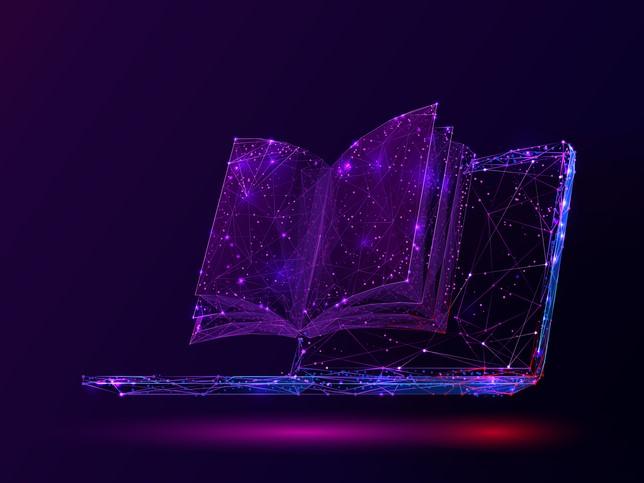Our libraries have been revolutionising for decades, as methods of research and study have changed with the information and scholarly publishing landscape. Library directors may now find themselves having to hedge against currency fluctuations to protect budgets and maintain purchases, in addition to their traditional role of curating collections of academic information.
These radical changes have led to shifts in the skills and expertise required of librarians as they evolve to meet the emerging and changing needs of their parent institutions.
- How should library spaces of the future function?
- Redefining the university library for 2025 and beyond
- The library’s role in digital education: content is still king
Below are short introductions to typical specialisations. This guide is far from exhaustive, and the exact title used for each role will vary from library to library.
Information services librarian
Information services librarian is a public-facing role that focuses on connecting users with the library’s collections and services. Librarians in this position need to have a broad knowledge of the resources available and a firm grounding in information search strategies. It’s common for people in these roles to specialise in one or more subject areas to be able to provide advanced support in those disciplines.
They also take a keen interest in effective pedagogies. Instructional efforts often revolve around developing information-literacy competencies, which help students succeed in their studies while simultaneously equipping them for lifelong learning.
A day in the life:
- Deliver a course-integrated workshop introducing discipline-specific databases to undergraduate students.
- Provide a one-to-one research consultation for a PhD student getting started with their literature review.
- Evaluate a database on trial from both a content and user interface perspective and weigh in on whether the library should subscribe.
Acquisitions librarian
These specialists do far more than buy books. With libraries now spending most of their collection budgets on e-resources, the work of acquisitions librarians is increasingly complex. These budgets are also under constant pressure, and so much effort is spent on improving return on investment.
One common strategy is to form a consortium with other libraries to maximise buying power when negotiating with publishers. A new challenge at many libraries is the emergence of agreements that combine read access with open access publishing, which are very different from traditional subscription agreements.
A day in the life:
- Review the licence agreement for a new e-resource that the library is considering, and counter-propose terms to protect the interests of the university.
- Participate with other acquisitions librarians from the consortium in a meeting with a major publisher on negotiating a new open access publishing agreement.
Digital scholarship librarian
The use of digital technologies to produce scholarship in digital forms emerged early in the 21st century as a distinct concept. Libraries have proved to be ideally placed to support digital scholarship, as they provide a central location within the academy for the necessary expertise and infrastructure. In addition to supporting faculty projects, a digital scholarship librarian will also provide training in relevant technology skills.
A day in the life:
- Meet with a faculty member to discuss how their research data could be developed into an online database to further its impact.
- Respond to questions submitted by students enrolled in an asynchronous course on Python programming led by the librarian.
Open science librarian
Academic libraries have for decades been at the forefront of the movement to make scientific research and its publication openly accessible. Advocacy and support for open science is now a specialism at some libraries, with the role taken up by librarians with a strong understanding of relevant trends and developments. An open science librarian's remit extends beyond open access to scholarly publications to the championing of open educational resources and open data initiatives.
A day in the life:
- Deliver a training session for graduate students on open science practices, FAIR data principles (a framework to make research data findable, accessible, interoperable and reusable) and proper citation of datasets.
- Review and curate open educational resources for deposit in the institutional repository.
Assessment librarian
Libraries, like other parts of the academy, recognise that their strategic decisions must be grounded in robust data analysis. The role of assessment librarian marries a deep understanding of library services and operations with a focus on producing meaningful evaluations of effectiveness. In an environment of increasing complexity, the insights they generate indicate where the library’s limited resources can be best deployed.
A day in the life:
- Prepare a report on a user feedback survey for library management, including recommendations for specific actions to take based on the data.
- Meet with the vendor of a people-counting system to explore how it could help the library better understand how to use its space.
Highlighted above are just some of the diverse expertise that you will find in academic libraries. While their duties and responsibilities will vary, a trait common to all librarians is a desire to provide excellent service and to collaborate with their faculty colleagues. When you need assistance, reach out to your librarians – they will invariably respond with enthusiasm and valuable support.
Chris Chan is university librarian at Hong Kong Baptist University.
If you would like advice and insight from academics and university staff delivered direct to your inbox each week, sign up for the Campus newsletter.




comment